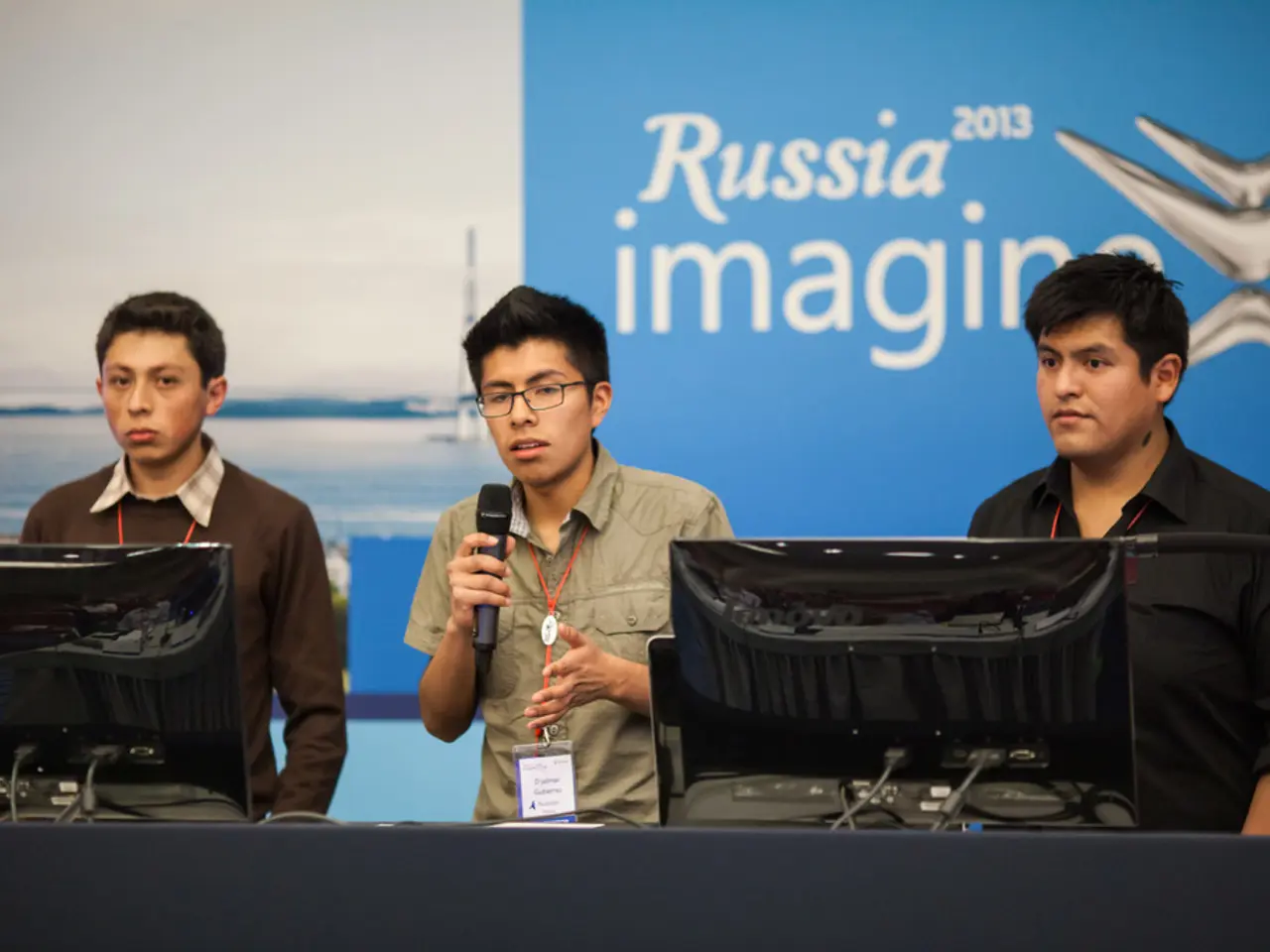Trump advises Europe to reduce dependencies on Russian oil, suggesting international pressure on China
In recent years, the European Union (EU) has seen a significant decrease in its reliance on Russian energy. This shift can be attributed to various factors, including a deliberate effort to phase out imports and the volatile political climate surrounding Russia.
According to data from 2020, Russia received €1.1 billion ($1.27 billion) in fuel sales from the EU. However, in the same period, Russia's share of EU natural gas imports dropped dramatically from 48% to 12%. This decline continued, with imports of petroleum oil from Russia falling from 29% to just 2% between the first quarter of 2021 and the second quarter of 2025.
The EU's movement away from Russian energy sources is not only a result of market forces but also political pressure. The European Commission has proposed legislation to phase out imports of Russian oil and gas by January 1, 2028. This decision comes in response to the ongoing conflict in Ukraine and the desire to reduce Europe's dependence on Moscow.
The United States, too, has been vocal in its support for economic pressure on Russia. U.S. Treasury Secretary Scott Bessent stated that "all options are on the table" while considering new sanctions against Moscow due to continuing Russian attacks in Ukraine. In a similar vein, President Trump called on European leaders to cease buying Russian oil and imposed a 50% tariff on India in late August for expanding its purchases of discounted Russian crude.
Trump's stance on this matter was further emphasized during his meeting with Putin in Alaska in mid-August. He also joined the meeting in Paris to discuss security guarantees for Ukraine, where leaders discussed ways to provide security guarantees for Ukraine and security for the region as a whole.
Ukrainian President Volodymyr Zelenskyy stated that Trump expressed dissatisfaction with countries still importing Russian energy. Among the European countries still importing Russian energy, Zelenskyy mentioned Hungary and Slovakia. Trump also threatened Russia and its energy partners with a 100% tariff if President Vladimir Putin did not take concrete steps toward a peace deal to end the war in Ukraine.
The appeal came after Trump joined the "Coalition of the Willing" meeting in Paris, hosted by French President Emmanuel Macron. The meeting was focused on discussing ways to provide security guarantees for Ukraine, as well as finding a peaceful solution to the ongoing conflict.
In conclusion, the EU's reliance on Russian energy has decreased significantly in recent years, and there are ongoing efforts to further phase out these imports. The political climate surrounding Russia continues to influence economic decisions, with both the EU and the U.S. expressing a desire to apply pressure on Moscow in response to its actions in Ukraine.
Read also:
- Lu Shiow-yen's Challenging Position as Chair of the Chinese Nationalist Party (KMT) Under Scrutiny in Donovan's Analysis
- Palmer engages in a dispute with AfD.
- Eric Adams reportedly considering abandoning his mayoral campaign for a Trump administration position
- Musk Intends to Allocate $100 Million to Trump Supporters Following Tesla's Advertising in the White House








